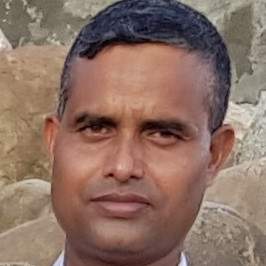It’s been almost two years since the people of Myanmar are being suppressed by military rule again. Humanitarian and security situations in Myanmar continue to deteriorate. People continue to suffer amid hostilities and a crippling economic crisis.
Though the regime is facing serious resistance from different Ethnic Armed Organizations (EAOs) and Peoples Defense Forces (PDFs), the Junta seems comfortable and determined to cement its position through a planned national election in 2023. Can this election be free and fair? The burning question to find answers.
First of all, let’s discuss the ‘Parachute policy’. A policy in which high-ranking military officers are dropped in to preside over ministries and agencies, results in professional and competent administrators having to work under active or retired military personnel.
Just as coups by the military are an old story in Myanmar, so is the transfer of army personnel to important positions in the country’s administrative mechanism. The policy was first introduced by the late dictator General Ne Win following his 1962 putsch. He set out to embed the military in every sector of the government, from low-ranking ministerial bureaucrats to all the way up to the presidency, and it was regarded as one of the worst aspects of his decades-long rule (Irrawaddy).
The current Junta chief is resurrecting his predecessors’ attempts to militarize the civil service. Half of the 30 ministries represented in the military regime’s cabinet are now overseen by military officers. Not only that, the ‘Permanent Secretary’ position for ministries has left behind many military officers in ministries.
Union Civil Service Board (UCSB), the body responsible for the recruitment and promotion of civil servants, has been taken over by the military, with nine officers led by a colonel. Union Election Commission UEC is now headed by a former Major General and already has members who are former army officers. In fact, all administrative bodies of the government are now directly under the control of the Junta. Apart from this election engineering setup, Junta is leaving no stone unturned to hold the 2023’s election.
Retired military officers and high-ranking government officials of the current regime gathered in Yangon in a reunion meeting (Dec 25). Senior military officers from the 15th, 16th, 17th, 18th, and 19th intakes of the Defense Services Academy (DSA), USDP party chairman ex-Brigadier General Khin Yi (17th intake) and Ministers from Foreign, International Cooperation and Rural Development Ministry were present among others.
Though the Junta chief (19th intake) did not attend in person, he sent messages and gifts. Considering the fact that the regime is planning to hold a general election in 2023 and the seniority of the people attending, the annual event took on a different complexion.
Junta released nearly 6,000 Prisoners on Nov. 17, and 7012 prisoners on Jan. 04, 2023 to create a trustworthy situation towards the upcoming election.
Junta has released Ayeyarwady Region’s chief minister and most of his cabinet members recently. As resistance forces are less active in Ayeyarwady Region, it’s easier for the regime to hold an election here. So, the release is an effort to create a suitable situation for the election.
Coming to Suu Kyi’s NLD, Junta has set up two National League for Democracy (NLD) members to negotiate for the election next year to imprisoned leader Suu Kyi. Daw Sandar Min, a former NLD Yangon Region lawmaker, and U Toe Lwin, the deputy chairperson of NLD Ayeyarwady Region, met with Suu Kyi at Naypyitaw prison last month. As Suu Kyi rejected the proposal, Junta has punished her with 7 more years of prison sentences.
Though Suu Kyi rejected it, reports say that more than 200 former NLD lawmakers accepted political pensions (a sum of money given to members of parliament when their terms end) from the regime. The report says, nearly ten former NLD members are looking to run in the Junta’s 2023 election.
In the case of EAOs, Junta has successfully launched a peace deal with the Arakan Army, ending a severe clash over the last couple of months in Rakhine. Not only that, Junta’s Office of Commander-in-Chief of Defence Services says, the military has extended the ceasefire agreement with ten EAOs till the end of 2023.
In the former Bamar-dominated regions (Sagaing, Magway and Mandalay), the epicenter and hotbeds of the new resistance movement, armed operations have been intensified by the Junta to neutralize resistance forces.
Diplomatically, with the help of China, the Junta is trying to stabilize the country. China’s Special Envoy to Myanmar held separate meetings with the representatives of seven Ethnic Armed Organizations (EAOs) in China’s Yunnan province this week, with a clear message that China wants stability, not conflict. While in a number of occasions, Russia, India, Cambodia, Thailand, Laos and Vietnam also expressed the same.
To establish people’s rule on the throne, democracy is a must and election is an integral part of a democratic system. But the election engineering and the control over governmental institutions, that the Junta has made, it is unlikely to have a free, fair and credible election. Instead, it can further deteriorate the present crisis and burning issues like Rohingya repatriation.
[Photo by MgHla, via Wikimedia Commons]
The views and opinions expressed in this article are those of the author.

Hasan Saifuddin Khan is a writer and professor of University of Dhaka, Bangladesh.

